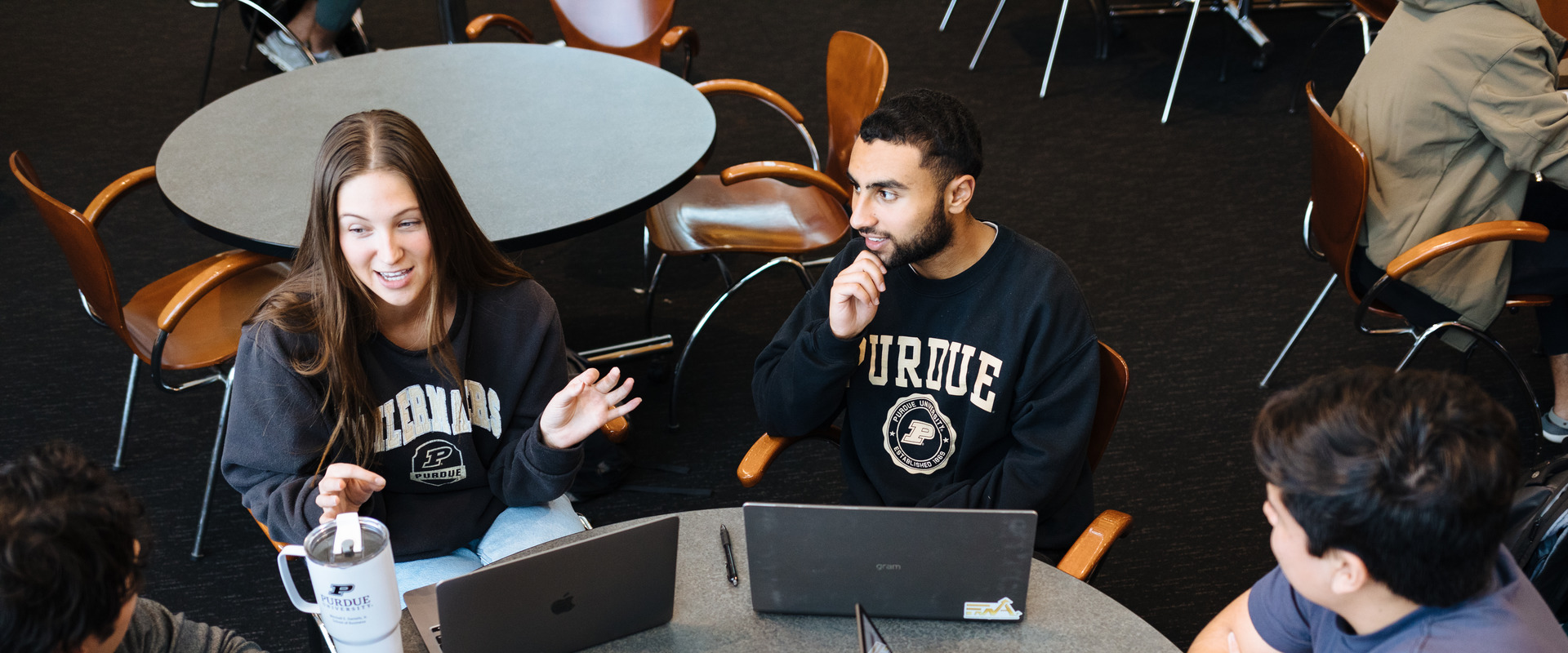
Published on 05-06-2024
The GMAT, or the Graduate Management Admission Test, is a computer-based assessment that cumulatively tests four core skills across four separate sections: verbal, mathematical, integrated reasoning and analytics skills. Through these sections, individuals test their ability to analyze and synthesize data, reason quantitatively and draw inferences. Upon taking this assessment, their scores are sent to their chosen schools.

Today, the GMAT is one of the most popular pre-admission tests taken globally, with over 108,851 exams written by prospective business school students in 2023, according to the Graduate Management Admissions Council (GMAC). These figures create the impression that every aspiring student must take the exam to get into their top graduate program. However, is this universally accurate?
John Gibson, an associate director of admissions at Purdue’s Daniels School of Business, draws on his 20-year tenure in higher education to emphasize that successful finance master's program applications need a variety of components to be considered holistic.
Prospective students might see their application as just numbers in a binder. However, Gibson explains that non-numeric factors matter too. Letters of recommendation, work experience, personal statements and statements of purpose speak strongly to an applicant's identity and character, making a strong impression.

Our team thoughtfully weighs and reviews these components, and we strive to have a balance between quantitative and qualitative measures to create a diverse and well-rounded cohort,” clarifies Gibson.
According to GMAC, in the past years, business master’s programs have been more likely to face declines in applications than growth, though more than half of Master of Finance programs experienced application growth in 2023. This is the second year in which Master of Finance applications increased after the post-pandemic slump affecting many programs in 2021. In addition, Master of Accounting programs were more likely to report growth than decline in 2023.
At the Daniels School of Business, prospective students are required to submit a minimum GMAT score of 500 or higher or an equivalent GRE score, but scores of 600 or more are best. This score helps determine the capabilities of applicants and allows the score to also fill in gaps within their application that may be lacking in other components.
“For our MSF program, we accept both the GMAT and the GRE, both in-home and test center editions, but we use the score as a piece of the holistic overview of the applicant,” says Gibson.

“The average class GMAT score over the past five years has been 630 while the average GRE is 320-322. We typically like to have a total score of 600-650 on the GMAT and 312-318 on the GRE. However, being in at least the 60% percentile on the quantitative part on either test is something to strive for,” reports GMAC.
But it’s not just about this score. The fate of their application also depends on the recommendations, resumes and work experience that they bring to the table, among other non-numerical factors.
Applicants are diverse, with various backgrounds and levels of expertise. The Daniels School recognizes this diversity, and as a result, provides added flexibility in the admissions process by allowing applicants to waive the submission of their scores.
Applicants can qualify for waivers in multiple ways, such as having extensive relevant professional experiences or holding advanced degrees and professional certifications like the CFA. These demonstrate their ability to succeed in the graduate program. The waiver may be available to domestic applicants or U.S. military personnel with a 3.5 GPA from a U.S.-accredited institution or equivalent degrees.
From GMAC: Holding certifications such as CFA Level II, CPA or equivalent, strong grades in quantitative coursework, STEM major and background from a known institution, and demonstrated professional experience are all things the committee will want to see for a waiver.
Upon qualifying for the waiver and submitting an application to the master's office at businessgradadmissions@purdue.edu, applicants can access the waiver form and proceed to the next steps. It is critical to keep in mind that only on rare, case-by-case occasions have candidates received a waiver and that all waiver requests are granted at the discretion of the admissions committee.
To learn more about the MSF application requirements visit this checklist.
Remember, your application is more than just numbers — it’s a reflection of your holistic self. Your GMAT and/or GRE score will remain a recommended part of your application, but there will be more components that will weigh in on the final verdict.

At the Daniels School of Business, learning is comprehensive, and prospective MS Finance students take their next leap confidently as they explore various careers in corporate finance, fintech, financial analysis, investment management and more. Within this program, ranked #5 by Eduniversal, students engage in global, team-based environments that strengthen their critical thinking skills.
This 10-month, 36-credit hour residential program also provides students the ability to access and manage the Student Managed Venture Fund (SMVF). Contributing to this one-of-a-kind fund creates avenues for students to collaborate with early-stage investors, interact with firms and co-invest with partners.
Learn more about getting involved with the SMVF.
Explore the MS Finance program.
If you would like to receive more information about pursuing a business master’s at the Mitch Daniels School of Business, please fill out the form and a program specialist will be in touch!